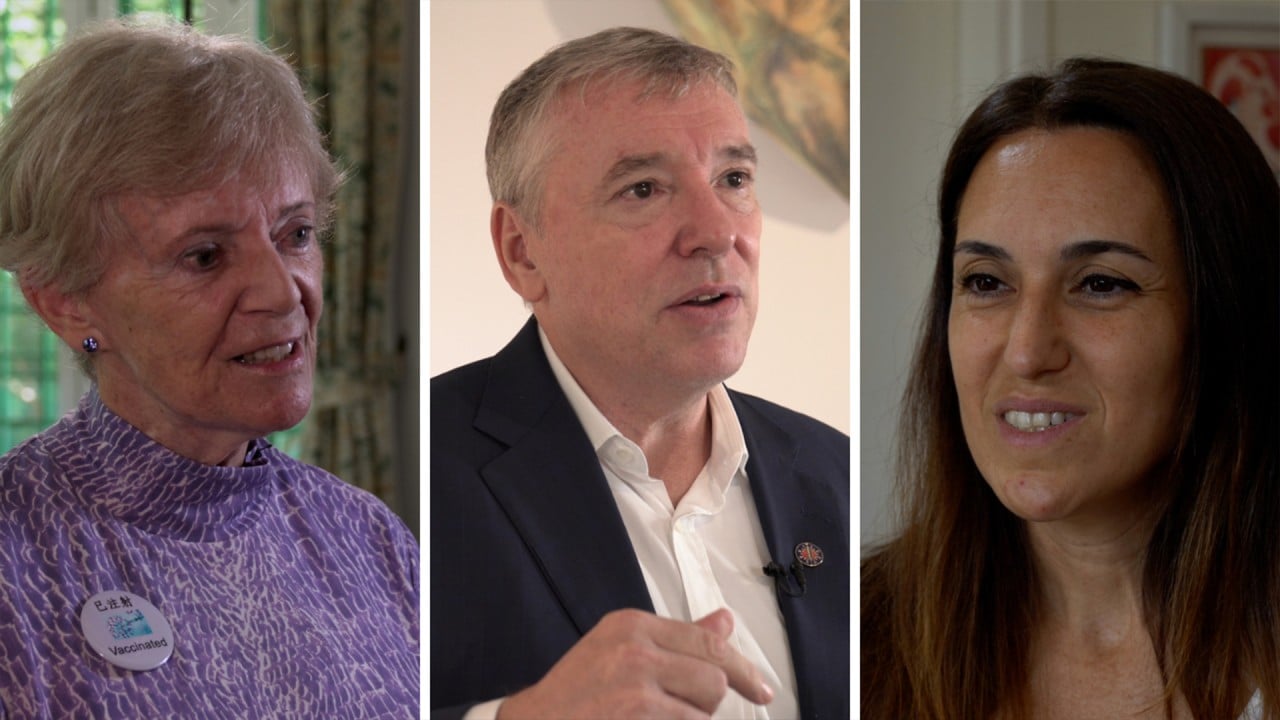
Luxury home rents ‘may fall by up to 15 per cent’ as Hong Kong’s strict zero-Covid policy sends expats packing
- Luxury home rents may fall by as much as 15 per cent this year as unhappy expats continue to leave in droves, say analysts
- The city is approaching ‘peak exodus’, with expats ‘moving either back to their own countries or to Singapore’, says Savills
“The luxury residential leasing market has been very quiet over the first quarter as expats were faced with yet more disruption to their personal and professional lives after a fifth wave of Covid-19 hit the city and the government responded with a range of exceptionally strict measures,” a Savills report released on Tuesday night said.
Luxury homes are defined as those with a gross floor area of at least 1,500 square feet and average rents of HK$37.5 (US$4.8) per sq ft per month – a total rent of about HK$56,250.
Victoria Allan, founder and managing director of Habitat Property that mainly caters to expats, said a lot of tenants were leaving before their rental contracts had expired.
“We are seeing a record number of break leases in the market and expect rents to fall by up to 15 per cent,” she said. “I think [the market] will continue to soften until it’s easier to be relocated into Hong Kong.”
Recent reports suggest a growing number of expats are fleeing Hong Kong’s tough Covid-19 curbs.
A survey of 260 executives by the European Chamber of Commerce showed that nearly half of businesses were considering moving elsewhere next year.
French bank Societe Generale is temporarily moving about a dozen traders from Hong Kong to Singapore, according to a Bloomberg report last month.
“Most people who have to leave have left … given the timing of school terms among other factors,” said Simon Smith, regional head of research and consultancy, Asia-Pacific, Savills.
On Hong Kong Island, rents in upscale neighbourhoods and expat favourites such as Mid-Levels, Pok Fu Lam, The Peak, Happy Valley and Jardine’s Lookout fell between 1.4 per cent and 2.7 per cent in the first three months of the year.
The declines were more pronounced elsewhere, with those in Ho Man Tin, Kowloon Tong, Discovery Bay, Sha Tin, Tai Po, Sai Kung, Tsim Sha Tsui and Hung Hom slumping between 3.4 per cent and 5.3 per cent, according to Savills.
The property consultancy is seeing more interest in expensive Hong Kong flats from one source, however: Japanese finance executives.
“More Japanese are looking to find flats in Hong Kong, according to anecdotal evidence from our agents,” Smith said. “[They] are looking for accommodation in Tsim Sha Tsui as their offices are mainly in that area.”
Allan of Habitat, though she has not yet witnessed the trend, said Japanese professionals coming to Hong Kong may have been given higher housing allowances than usual by their companies.
“We are seeing increased housing packages again as Hong Kong is being viewed as a hardship posting,” she said.
If Hong Kong is unwilling to change its requirement for a seven-day quarantines for all international arrivals, and mandatory isolation at a government facility for all positive Covid-19 cases by the end of the year, “it may be harder to recover,” Allan said.
“I expect more expats to leave if they don’t drop the quarantine and it will also depend on how they handle Covid-19 positive cases at the schools,” she said.
“If they quarantine the children and the parents, that will result in a lot of people leaving. A one-week quarantine doesn’t allow business travel, and the fear of testing positive on arrival and being sent to a government quarantine facility does not help business travel either.”


